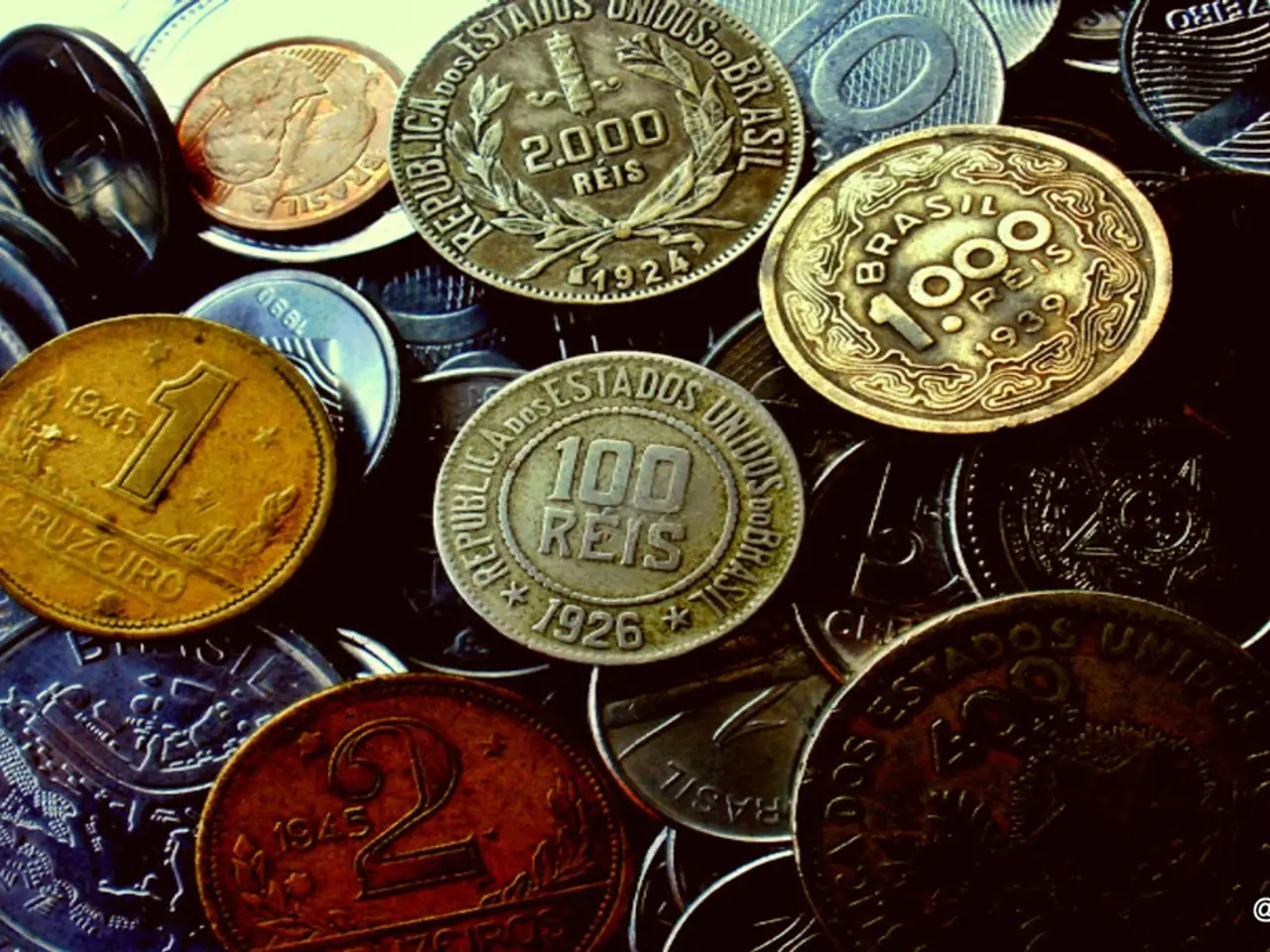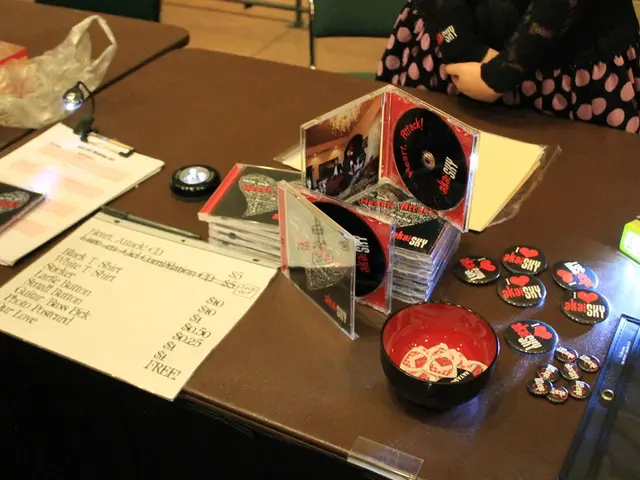Banks in South Korea to Introduce a Joint Digital Currency, Labeled as a Stablecoin
South Korea Prepares for Stablecoin Legislation in 2025
South Korea is gearing up to introduce a regulatory framework for won-pegged stablecoins, with the formal submission of the stablecoin regulation bill to the National Assembly planned for October 2025.
The South Korean Financial Services Commission (FSC) has been developing this framework throughout 2023, focusing on issuance rules, collateral management, and risk control for stablecoins. The FSC plans to submit a detailed stablecoin regulation bill to the National Assembly around October 2025 as part of the second phase of the Virtual Asset User Protection Act.
In 2023, the FSC has been laying the groundwork and forming policies for the regulation of stablecoins. This preparatory work sets the stage for the core legislation, which is expected to be formally introduced and debated primarily in 2025.
The Korean central bank supports won-backed stablecoins but insists on strict regulatory oversight, recommending that banks should be the primary issuers to prevent risks like money laundering and regulatory evasion by non-bank entities. President Lee Jae-myung, elected in early 2025, advocates for stablecoins pegged to the Korean won to enhance national monetary sovereignty and reduce dependence on dollar-pegged stablecoins.
Korean banks, including KB Kookmin, Shinhan, Woori, NH Nonghyup, IBK Industrial, Sh Suhyup, and Korea Financial Telecommunications & Clearing Institute (KFTC), have decided to create a joint venture to issue a Korean stablecoin. KFTC operates the main retail payment systems in Korea. Hana Bank, however, is not mentioned among the banks involved in the joint venture.
Meanwhile, Shinhan Bank and NH Nonghyup Bank are participating in Project Pax, a Japanese initiative for cross-border payments using stablecoins. The initiative is being coordinated by the Open Blockchain and DID Alliance. Project Pax uses Japan's Progmat tokenization platform, whose backers include MUFG, SMBC, and Mizuho Bank.
The Open Blockchain and DID Alliance has also been coordinating the Korean stablecoin joint venture, while the Korean stablecoin joint venture is still focused on creating a domestic stablecoin. The alliance has created a stablecoin working group with participating banks to further develop the stablecoin market in Korea.
Despite the ongoing preparations for stablecoin regulations, Koreans may still be wary of stablecoins due to the collapse of the Terra algorithmic stablecoin, which was launched from Korea and contributed to the collapse of the FTX crypto exchange. There are concerns about funds flowing out of deposits to stablecoins if banks do not actively enter the market.
Ledger Insights Research has published a report on bank-issued stablecoins and tokenized deposits featuring more than 70 projects. The report can be found here. The Korean news outlet did not mention any involvement of Hana Bank in Project Pax or the Korean stablecoin joint venture.
The Trump administration has promoted dollar stablecoins. However, South Korea's approach to stablecoins reflects a balanced stance of fostering digital finance innovation while implementing robust controls to mitigate risks within the crypto ecosystem.
- The South Korean Financial Services Commission (FSC) has been developing a regulatory framework for stablecoins, with a focus on issuance rules, collateral management, and risk control.
- Korean banks, such as KB Kookmin, Shinhan, Woori, NH Nonghyup, IBK Industrial, Sh Suhyup, and Korea Financial Telecommunications & Clearing Institute (KFTC), are planning to create a joint venture to issue a Korean stablecoin.
- The Korean central bank supports won-backed stablecoins, but insists on strict regulatory oversight, suggesting that banks should be the primary issuers.
- The Open Blockchain and DID Alliance has been coordinating both the Korean stablecoin joint venture and Project Pax, a Japanese initiative for cross-border payments using stablecoins.
- The ongoing preparations for stablecoin regulations in South Korea follow the collapse of the Terra algorithmic stablecoin, raising concerns about funds flowing out of deposits to stablecoins if banks do not actively enter the market.
- Ledger Insights Research has published a report on bank-issued stablecoins and tokenized deposits, featuring more than 70 projects.
- South Korea's approach to stablecoins reflects a balanced stance of fostering digital finance innovation while implementing robust controls to mitigate risks within the crypto ecosystem.




